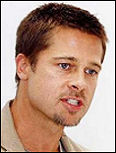Today was a moderately good day until the hard drive on my relatively new Gateway laptop (a nice 17-incher with a 160 gig hard drive) hiccuped and froze up and was suddenly functional no more. “A bad hard drive,” the Geek Squad guy at B’way near Houston said about 90 minutes after I first realized I had a problem. No repairs, over and done with, tough luck.
I didn’t purchase unit-replacement insurance when I bought the Gateway for the second time last December (the first unit stopped putting out sound and had to be replaced), so I had to fork over big-time for a brand new unit. The Geek guy swore that Gateway laptops, despite my bad luck, are highly reliablle. Welcomely, the price has dropped to about $700 — down from $1100 five months ago — and of course the new one has Windows Vista rather than Windows XP.
A voice was telling me last November I should buy a Mac; I didn’t listen because I didn’t want to repurchase all the programs (FTP software, photo and video editing, etc.) and because the nice ones cost a good deal more, but I should have just sucked it in and bitten the bullet. If I had I wouldn’t be going through this crap right now. I vaguely disliked and certainly didn’t trust PC’s before today’s misfortune — my feelings are much more adamant now.
All the data and photos and e-mail is being transferred to CDs by that Geek Squad guy (it may take him until tomorrow morning) and I’m going to have to contact all the people I bought programs from and submit the required numerical data so I can re-download and re-install everything. I’ll hopefully be able to file a couple of stories tonight or certainly by tomorrow morning, but wont be back up to full groove speed for at least a couple of days, and more likely not until Thursday or Friday.
The hard-drive issue happened right before I was about to see Spider-Man 3 at the Lincoln Plaza. In Contention‘s Kris Tapley (fresh from a long coast-to-coast road trip) was with me. I’d been told by an IMAX publicist that passes would be waiting for the 5 pm show, but the staffers at the theatre couldn’t find any message or confirmation of this, and by the time they’d sorted it out the sold-out show had begun. So we went to see it a regular 35mm theatre, and then the shit started when I turned on the copmputer to check e-mails. Awful, awful, awful.







